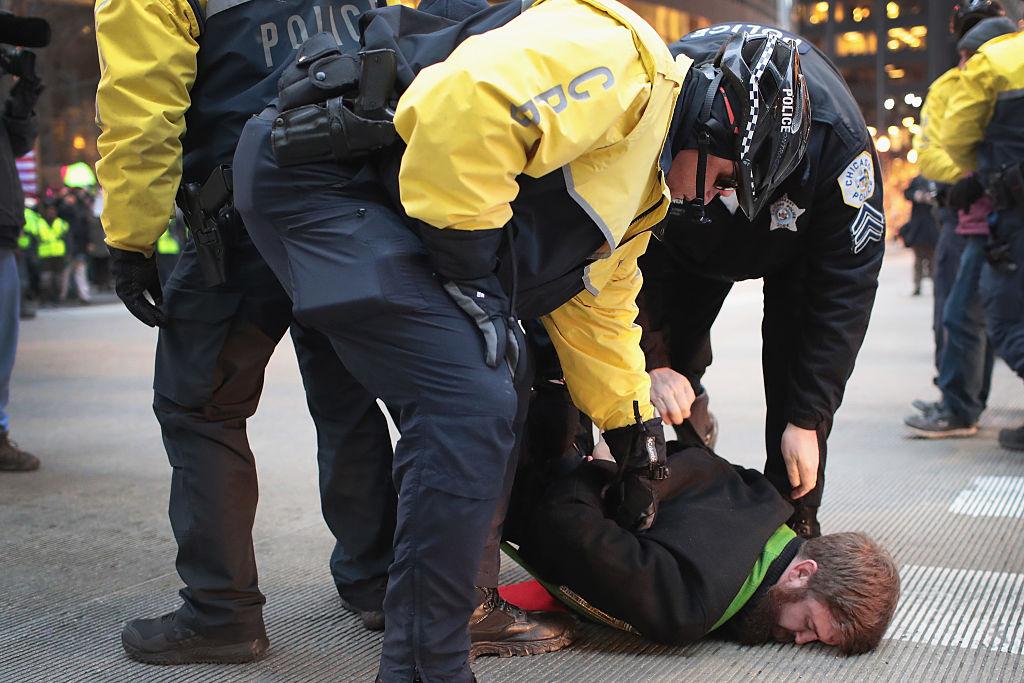US states propose new laws which could stop people protesting against Donald Trump

Your support helps us to tell the story
From reproductive rights to climate change to Big Tech, The Independent is on the ground when the story is developing. Whether it's investigating the financials of Elon Musk's pro-Trump PAC or producing our latest documentary, 'The A Word', which shines a light on the American women fighting for reproductive rights, we know how important it is to parse out the facts from the messaging.
At such a critical moment in US history, we need reporters on the ground. Your donation allows us to keep sending journalists to speak to both sides of the story.
The Independent is trusted by Americans across the entire political spectrum. And unlike many other quality news outlets, we choose not to lock Americans out of our reporting and analysis with paywalls. We believe quality journalism should be available to everyone, paid for by those who can afford it.
Your support makes all the difference.After a turbulent start to Donald Trump’s presidency, which has seen millions of Americans take to the streets, Republican states are introducing a number of ‘anti-protest’ laws.
Some of the bills were registered before Mr Trump’s inauguration, as a response to mass protests organised by Black Lives Matter and at Standing Rock.
However, the laws have come under fresh scrutiny after mass protests against the Mr Trump administration, including the Women's March, which may have been the largest demonstration in US history.
At least 10 new bills which aim to curb the right to protest have been filed by state legislatures in recent months.
In North Dakota, where a protest camp has been established for months on the proposed site of the North Dakota Access pipeline, legislators recently introduced a bill which would allow motorists to run over and kill a protester, so long as the driver did not “intend” to kill them.
“If you stay off the roadway, this would never be an issue,” State Representative Keith Kempenich told local media. “Those motorists are going about the lawful, legal exercise of their right to drive down the road.”
Minnesota and Iowa have also introduced laws targeted at protesters who hold up traffic.
Iowa is officially looking to criminalise the act of stopping traffic during protests, introducing a maximum penalty of five years in prison, plus a fine of up to $7,500.
In Minnesota, a Republican-led House committee passed a measure last week that would allow local governments to sue convicted protestors for the costs of law enforcement and security associated with demonstrations.
Next week, a North Carolina state senator will propose a bill which would make it a criminal offence to “threaten, intimidate, or retaliate against a present or former North Carolina official in the course of, or on account of, the performance of his or her duties.”
The bill comes after former North Carolina Governor Pat McCrory was followed and shouted at by protesters while attending President Trump’s inauguration celebrations.
Civil liberties organisations across America have expressed concern that these laws violate the First Amendment, which guarantees American citizens’ freedom of speech, as well as the right to “peacably assemble”.
A senior member of the American Civil Liberties Union told Bloomberg: “I’ve been monitoring free speech legislation for about a dozen years now, and I’ve never seen anti-protest legislation in the states anywhere near as large as we’re seeing this year,”
President Trump’s position on the right to protest is not clear. However, Mr Trump has previously described protests in DC on his inauguration day “unfair”, and more recently tweeted his anger after far-right commentator Milo Yanopolous was forced to cancel his talk at UC Berkeley when protests turned violent.
Join our commenting forum
Join thought-provoking conversations, follow other Independent readers and see their replies
Comments